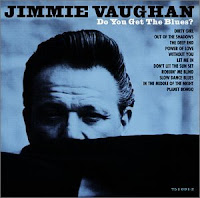V1.15
Being called the “Next Bob Dylan” has usually proven to be the kiss of death for young artists, an albatross that can’t be shaken off. When labeled with the “Dylan” tag, singer/songwriter Dan Bern has been known to quip that he instead thinks of Dylan as “the next Dan Bern.” It’s this unique perspective and tongue-in-cheek sense of humor that has made Bern one of the most original artists toiling away in the musical wasteland these days. With his latest album, New American Language (Messenger Records), Bern displays a maturity in his craft that places him head and shoulders above skilled wordsmiths like Ike Reilly or Peter Yorn.
Working with a full band, Bern fleshes out his typically sparse, folk-influenced sound with a fury, songs like the hilarious and thought-provoking “Alaska Highway” managing to name-check Leonardo DiCaprio, Eminem, Britney Spears and Keith Richards in its rollicking verses. It’s with his lyrics that Bern leaves his mark, whether singing of talking to God (the introspective “God Said No”), artistic trials (“Turning Over”) or media overkill (“Tape”). Bern weaves politics, pop culture, spiritualism and romance into his priceless songs, delivering throwaway couplets that might have you scratching your head yet remembering his words days later. In the end, Bern admits in the title song of New American Language that “I have a dream of a new pop music that tells the truth, with a good beat and some nice harmonies.” With his own work, Dan Bern is making strides towards creating that “new pop music.”
As a founding member of Austin, Texas blues-rock heroes the Fabulous Thunderbirds, Jimmie Vaughan’s distinctive guitar style was often overshadowed by the accomplishments of his brother, the legendary Stevie Ray. As a solo artist, the elder Vaughan’s work has often been unfairly compared to that of his brother, regardless of their differing styles. The talented Jimmie has never hidden from his brother’s legacy and talent – when I met him during the early eighties, complimenting him after a red-hot T-Birds’ show, Jimmie heartily exclaimed “you should hear my little brother play!”
To Vaughan’s credit, the recent Do You Get The Blues? (Artemis Records) sounds nothing like his brother’s well known work. Offering a healthy mix of Chicago and Texas-styled blues and soul, the eleven songs on Do You Get The Blues? serve as a wonderful showcase for Jimmie Vaughan’s own amazing brand of six-string pyrotechnics. Ranging from the mellow, almost jazzy “Don’t Let the Sun Set” to the rocking “Robbin’ Me Blind” or the smoky “Power of Love” (with vocals by blues temptress Lou Ann Barton), Vaughan’s solo work is a portrait in emotion and energy. Not the most innovative contemporary blues artist – these days, I’d have to award that accolade to Paul Reddick – Vaughan is nevertheless an entertaining performer, a throwback to a simpler era when the music did the talking and audiences were mesmerized by giants like Lightning Hopkins, Muddy Waters, and Otis Rush.
Another talented Texan, Ray Wylie Hubbard, is as obscure a legend as you’re likely to find these days. A country artist with about as much in common with Nashville as the Rio Grande and the Alamo, Hubbard is the last in a long line of Lone Star troubadours that began with Bill Neely and includes Townes Van Zandt and Guy Clark. With Eternal and Lowdown (Rounder Records), Hubbard offers up another fine collection of poetic narratives, intelligent and literary story-songs that tell a tale and often hide a moral of some sort among their lyrics. With a voice as stark as a desert cactus and as grizzled as a wind-beaten tumbleweed, Hubbard populates his songs with saints and sinners, gamblers and outlaws, true believers and hopeless romantics, the words punctuated by music that is pure Texas soul. If the antics of mass-produced cowboys and cover-girl cowgirls has got you longing for some good old-fashioned, poop-punting music, you owe it to yourself to check out Ray Wylie Hubbard’s Eternal and Lowdown.
A linguistic craftsman with a keen eye for political and social trends, no other critic or commentator comes close to the caustic humor and biting wit of George Carlin. A four-DVD box set, The George Carlin Collection (MPI Home Video), offers five of the twelve performance specials that Carlin has created for HBO. On Location With George Carlin was his first, from 1977, recorded with some technical difficulties in the early days of cable television. This performance sets the stage for observations and bits to come, with George Carlin Again! (1978), Carlin At Carnegie (1982), and Carlin On Campus (1984) showing the gradual evolution in Carlin’s art, a transformation from hippie humorist to insightful social commentator.
Carlin must be seen to really be appreciated – bits heard on CD pale next to these on-screen performances. An extremely physical comedian, Carlin rolls his eyes, contorts his face and uses his hands and body to express a thought or deliver an idea. His wit and inventiveness are unmatched by contemporary comics looking towards a sitcom deal. All four of the HBO specials captured on these DVDs provide timeless humor. Each of these performances is also available on individual discs while a fifth HBO special – a compilation of Carlin’s personal favorites – draws from the four other shows for those who only want to experience the highlights of these performances. For the true fan, though, it’s well worth the money to spring for the whole enchilada, The George Carlin Collection documenting an important era of this great comic’s career. (The View On Pop Culture, November 2001)




No comments:
Post a Comment